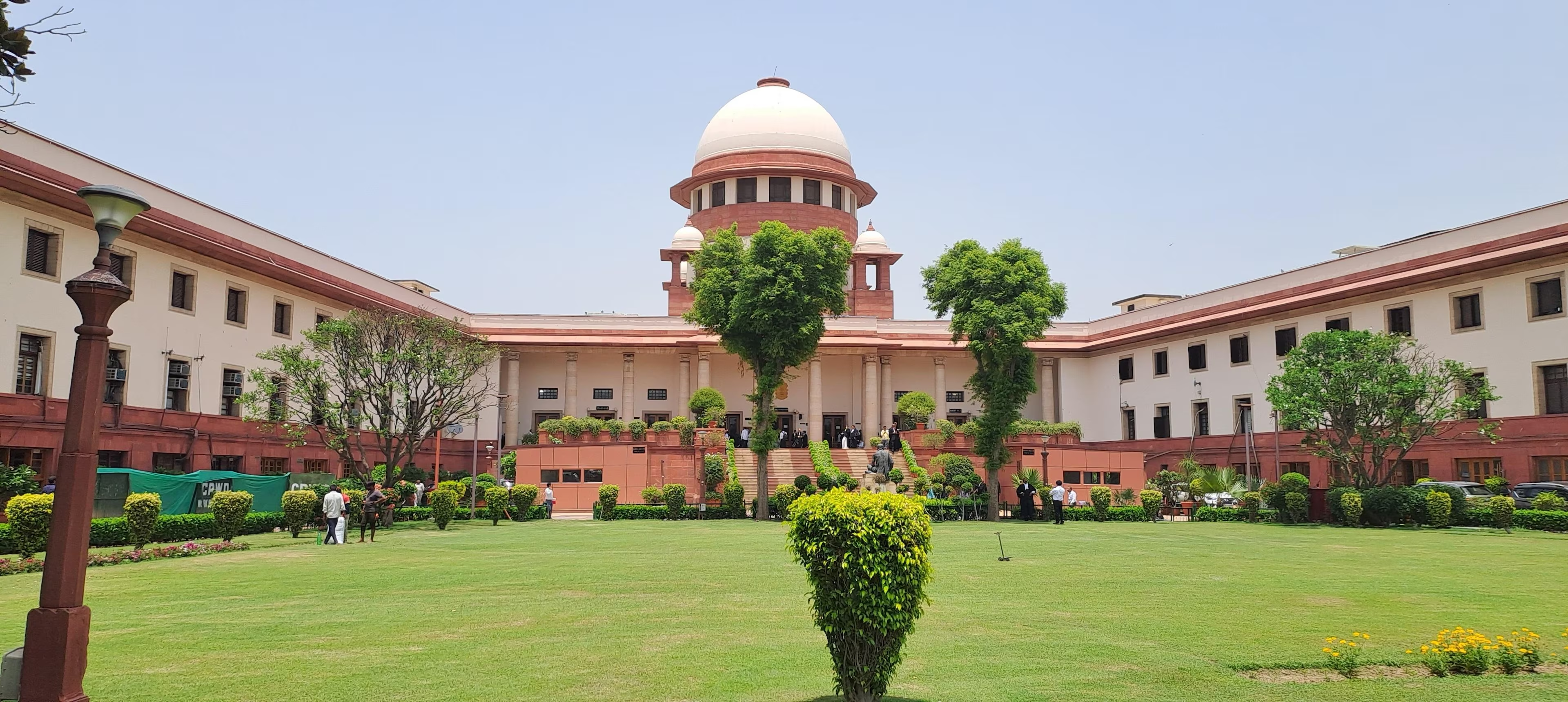- Courses
- GS Full Course 1 Year
- GS Full Course 2 Year
- GS Full Course 3 Year
- GS Full Course Till Selection
- CSAT
- 5 LAYERED ARJUNA Mentorship
- Public Administration Optional
- Online Program
- GS Recorded Course
- NCERT (Recorded 500+ Hours)
- Polity Recorded Course
- Geography Recorded Course
- Economy Recorded Course
- AMAC Recorded Course
- Modern India, Post Independence & World History
- Environment Recoded Course
- Governance Recoded Course
- Science & Tech. Recoded Course
- International Relations and Internal Security Recorded Course
- Disaster Management Module Course
- Ethics Recoded Course
- Essay Recoded Course
- Current Affairs Recoded Course
- ABOUT US
- OUR TOPPERS
- TEST SERIES
- FREE STUDY MATERIAL
- VIDEOS
- CONTACT US
Argentina Considering Leaving the Paris Agreement: What Does It Mean?
Argentina Considering Leaving the Paris Agreement: What Does It Mean?

- Argentina’s newly elected far-right President, Javier Milei, is considering whether to withdraw the country from the Paris Agreement on climate change.
- This idea gained attention after the Argentine government asked its negotiators to leave the ongoing COP29 climate summit.
- The news comes at a time when there are concerns that the United States under Donald Trump might also pull out of the Paris Agreement again.
What is the Paris Agreement?
Key Objectives:
Achievements:
Criticism:
|
How does a country withdraw from the Paris Agreement?
Article 28 of the Paris Agreement: The process for withdrawing from the Paris Agreement is explained in Article 28:
- Withdrawal Timeline: A country can leave three years after the agreement came into effect (which was in 2016), by notifying the UN in writing.
- One-Year Notice: Once the UN receives the notification, the withdrawal becomes official one year later (or later if the country specifies).
- Continued Participation: Until the withdrawal is complete, the country remains part of the Paris Agreement and must continue to follow its rules, including reporting emissions and climate actions.
Why is Argentina considering leaving the treaty?
- President Javier Milei has denied climate change in the past, calling it a "socialist lie."
- Government’s Current Stance: Argentina’s Foreign Minister Gerardo Werthein said that the country is re-evaluating its climate strategy but has not yet decided whether to leave the agreement.
- Werthein also stated that Argentina recognizes climate change but believes it is caused by natural cycles rather than human activity like burning fossil fuels.
Milei’s Views on Climate Change:
- Milei agrees that climate change is real, but he believes it is linked to natural cycles rather than the actions of humans.
- He said Argentina agrees on the need to take action to mitigate (reduce) the effects of climate change but disagrees with some aspects of the Paris Agreement.
What Impact Would Argentina’s Withdrawal Have?
- Domino Effect: Experts fear that if Argentina pulls out, other countries might also reconsider their participation in the Paris Agreement.
- This could weaken the global efforts to limit global warming to 1.5°C and prevent catastrophic climate effects.
- Global Emissions: Argentina is the 24th-largest emitter of greenhouse gases (GHGs) worldwide.
- Its withdrawal could make it harder to meet global emissions reduction targets, especially since countries are aiming to cut emissions by 42% by 2030 and 57% by 2035 to avoid breaching the 1.5°C target.
Argentina’s Role in Global Emissions
- Argentina is South America’s 2nd-largest economy and has huge fossil fuel resources, including the 2nd-largest reserves of shale gas and the 4th-largest reserves of shale oil in the world.
- This means Argentina plays a significant role in the global energy market.
- Trade Impacts: If Argentina pulls out of the Paris Agreement, it may become less attractive as a trading partner, especially with countries like the EU that are adopting measures like carbon tariffs on products with high emissions.
- This could harm Argentina's fossil fuel exports and other carbon-heavy industries.
Isolation on the World Stage
- Argentina might face growing isolation in global trade, particularly as countries like the EU introduce carbon tariffs on goods that contribute to climate change.
- This could affect Argentina’s ability to compete in the global market.
Domestic Challenges
- Parliamentary Approval: Even if President Milei decides to withdraw, he would need to get approval from Argentina’s parliament, which could be difficult.
- Argentina ratified the Paris Agreement in 2016, and international treaties in Argentina are given constitutional status, meaning withdrawing would require significant legal changes.
What are the Alternatives for Argentina?
- Instead of leaving the Paris Agreement, Argentina could adjust its climate commitments to reflect its own priorities and economic realities.
- For example, it could set less ambitious emissions reduction targets but still take action on climate change.
- Argentina could focus on clean energy technologies and sustainable development that help the country reduce emissions while still pursuing economic growth.
- This could allow Argentina to align with global climate goals without fully committing to all the strict rules of the Paris Agreement.
- Argentina could work with other countries, especially in the Global South, to reform parts of the Paris Agreement that don’t align with its national circumstances.
- It could push for more flexible climate targets that balance global and local needs.
Conclusion
Argentina’s consideration of leaving the Paris Agreement could have significant effects on global climate policy. As the 24th-largest emitter of greenhouse gases, Argentina plays a key role in the global effort to limit global warming. While the withdrawal might make Argentina more isolated in international trade, particularly with the EU, it would also encourage other countries to reconsider their participation. However, Argentina’s exit is not guaranteed, and domestic political challenges, such as the need for parliamentary approval, could make it difficult for President Milei to follow through with the withdrawal. Ultimately, Argentina may seek to revise its climate strategy instead of fully pulling out of the Paris Agreement.
Must Check: Best IAS Coaching In Delhi
UPSC Prelims Result 2024 Out: Expected Cut Off & Other Details, UPSC Prelims 2024 Answer with Explanation, Daily Prelims Quiz, Daily Current Affairs, MONTHLY CURRENT AFFAIRS TOTAL (CAT) MAGAZINE, Best IAS Coaching Institute in Karol Bagh, Best IAS Coaching Institute in Delhi, Daily Mains Question Answer Practice, ENSURE IAS UPSC Toppers, UPSC Toppers Marksheet, Previous Year Interview Questions, UPSC Syllabus




